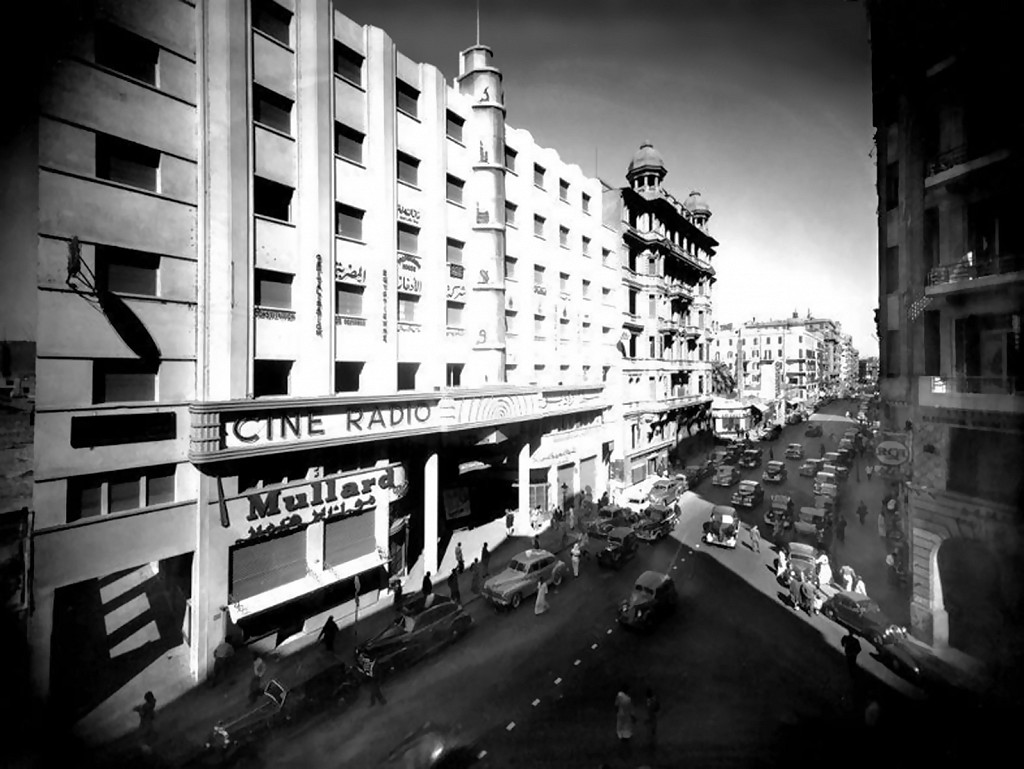Cinema Radio: Von der Filmdarstellung zum politischen Zusammenspiel
„Die Stadt ist das kollektive Gedächtnis ihrer Einwohner. Wie die Erinnerung ist die Stadt mit Objekten und Orten verbunden. Es ist der Ort des kollektiven Gedächtnisses. “Aldo Rossi
Einer der Orte, die das kollektive Gedächtnis in der Innenstadt von Kairo auslösen, ist Cinema Radio. Ein emblematisches Gebäude, das seit den 1940er Jahren für drei Generationen zu einem Erinnerungsmedium wurde und vor kurzem eine einzigartige Rolle bei der Veränderung des Weges der politischen Szene in Ägypten nach dem Aufstand im Jahr 2011 spielte. Als Kino dokumentierte es nicht nur gesellschaftliche Erinnerungen durch Filmhandlungen, aber auch durch seine räumliche Typologie als neue Öffentlichkeit im goldenen Zeitalter des Filmemachens zwischen den 1920er und 1950er Jahren. In der zweiten Hälfte des 20. Jahrhunderts erlebte es jedoch Zeiten des Verfalls und der Verlassenheit, bis es 2011 wiederentdeckt wurde, als junge Ägypter die Straßen der Innenstadt stürmten und einen Regimewechsel forderten. Sie begannen dann, den nostalgischen Charme dieses einzigartigen städtischen Gefüges mit seinem alten Kinoradio wiederzuentdecken. Mit diesem politischen Erwachen zeigten die Investoren Interesse an diesem Kino und nutzten es seit 2011 drei Jahre lang, um wöchentliche Live-Shows eines satirischen Programms zu veranstalten. Der Raum prägte dann die politische Meinung der Öffentlichkeit, bevor die Show wegen des Verbots verboten wurde zu seinen verbreiteten politischen Ansichten gegen die neue Regierung. In diesem Artikel wird daher untersucht, wie diese Typologie sowohl als Testament als auch als physischer Beweis für das räumliche und politische Gedächtnis Ägyptens im 20. Jahrhundert dient.
- Ort
- Birkbeck, University London
- Jahr
- 2018
- Status
- Konferenz
- Referent
- Bedour Braker, Ph.D.
- Art
- Konferenz
- Veranstalter:
- London Centre for Interdisciplinary Research
- Präsentiert
- 16 Juni 2018
- Foto
- Lehnert and Landrock- Cultnat
